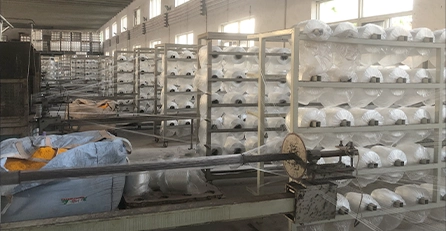Understanding the Importance of Vacuum Hose in Automotive Performance and Maintenance
Understanding Vacuum Hoses Their Importance and Applications
Vacuum hoses are critical components in various systems that utilize suction power for efficient operation. Whether in automotive applications, industrial machinery, or household devices, these hoses play an essential role in transferring air and other materials in a controlled manner. Their design and functionality are tailored to accommodate specific pressure levels and material types, making them versatile in multiple settings.
At their core, vacuum hoses are designed to create a seal that enables the generation of vacuum pressure. This pressure difference allows for the movement of air or liquids, facilitating various processes. In automotive applications, for example, vacuum hoses can be found connecting components like the brake booster and the intake manifold. A properly functioning vacuum hose ensures that the brake system operates efficiently, providing the necessary power assist for safe stopping.
The materials used to fabricate vacuum hoses are also crucial for their performance. Common materials include rubber, PVC, and silicone, each offering different benefits. Rubber hoses are often preferred for their flexibility and durability, while silicone hoses can withstand higher temperatures and pressures. The choice of material will depend on the specific requirements of the application, such as the temperature range, chemical exposure, and pressure levels.
vacuum hose

In industrial settings, vacuum hoses are utilized in material handling systems
. They are commonly found in dust collection units, where they help transport dust and debris away from work areas, maintaining a cleaner and safer environment. Similarly, in food processing operations, vacuum hoses ensure that ingredients are moved efficiently through various stages of production without contamination.In household appliances, vacuum hoses are perhaps most recognizable in vacuum cleaners. The design of these hoses allows for effective collection of dirt and debris while maintaining airflow. High-quality vacuum hoses in appliances are capable of withstanding repeated use without cracking or wearing out quickly, ensuring longevity and performance.
Regular maintenance of vacuum hoses is essential to ensure their continued efficiency and effectiveness. It is crucial to inspect them for signs of wear, such as cracks or bulges, which can lead to leaks and reduced performance. Replacing damaged hoses promptly can prevent complications and ensure systems operate at peak efficiency.
In conclusion, vacuum hoses are indispensable components across a variety of applications, from automotive and industrial systems to household appliances. Their ability to create a seal for efficient suction power not only enhances performance but also contributes to safety and cleanliness in various environments. Understanding the importance of these hoses, their materials, and maintenance can lead to more effective use and prolonged service life. Whether you're an automotive enthusiast, an industrial worker, or a homeowner, recognizing the role of vacuum hoses can improve both functionality and efficiency in your daily tasks.
-
Welded Wire Mesh Panel: Durable, Versatile, and AffordableNewsJul.28,2025
-
Top Quality Oxy Acetylene Hoses for Sale Fit for Welding DemandsNewsJul.28,2025
-
The Future of Pneumatic Air Tubes in IndustryNewsJul.28,2025
-
Superior and Reliable LPG Hose Pipe Solutions for Every NeedNewsJul.28,2025
-
Exceptionally Durable and Versatile Premium Braided PVC TubingNewsJul.28,2025
-
Best Adapters for Connecting Garden Hose to PVC Pipe ConnectionsNewsJul.28,2025














